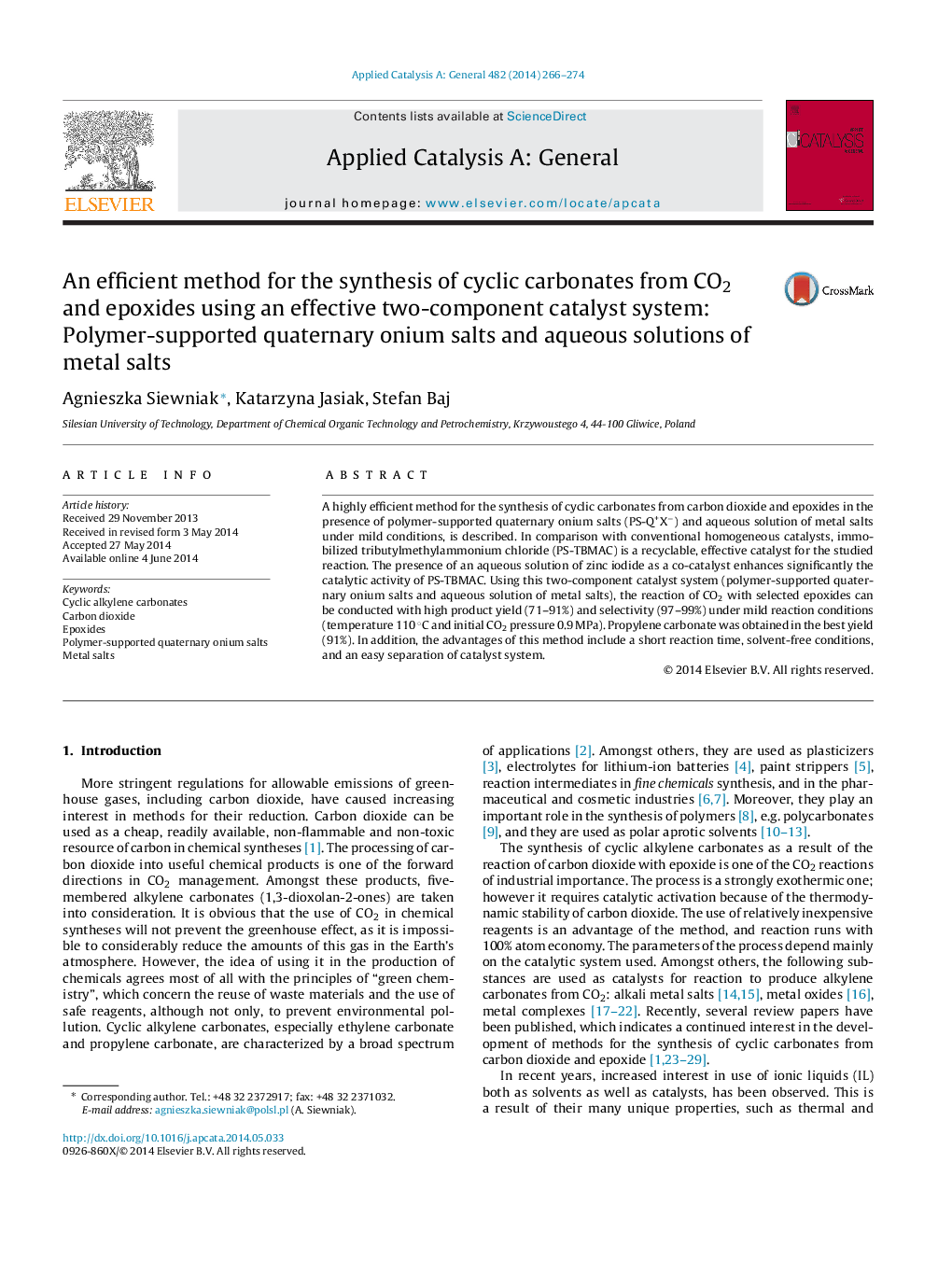| Article ID | Journal | Published Year | Pages | File Type |
|---|---|---|---|---|
| 39608 | Applied Catalysis A: General | 2014 | 9 Pages |
•An efficient method to synthesize the cyclic carbonates from CO2 and epoxides.•Catalytic system consisting of polymer-supported quaternary onium salts and ZnI2.•A method offers the possibility of easy recycling of catalyst.•Cyclic carbonates were obtained in mild conditions and in good yields.
A highly efficient method for the synthesis of cyclic carbonates from carbon dioxide and epoxides in the presence of polymer-supported quaternary onium salts (PS-Q+X−) and aqueous solution of metal salts under mild conditions, is described. In comparison with conventional homogeneous catalysts, immobilized tributylmethylammonium chloride (PS-TBMAC) is a recyclable, effective catalyst for the studied reaction. The presence of an aqueous solution of zinc iodide as a co-catalyst enhances significantly the catalytic activity of PS-TBMAC. Using this two-component catalyst system (polymer-supported quaternary onium salts and aqueous solution of metal salts), the reaction of CO2 with selected epoxides can be conducted with high product yield (71–91%) and selectivity (97–99%) under mild reaction conditions (temperature 110 °C and initial CO2 pressure 0.9 MPa). Propylene carbonate was obtained in the best yield (91%). In addition, the advantages of this method include a short reaction time, solvent-free conditions, and an easy separation of catalyst system.
Graphical abstractFigure optionsDownload full-size imageDownload high-quality image (101 K)Download as PowerPoint slide
